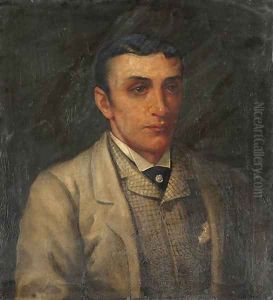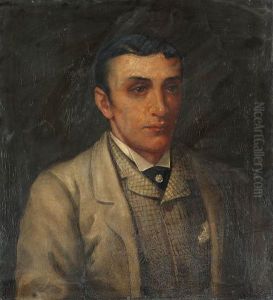Rosa Frances Corder Paintings
Rosa Frances Corder was a notable figure in the Victorian art world, primarily recognized for her talents as a portrait painter and her association with some of the most influential artistic and literary figures of her time. Born in 1853, Corder's life was emblematic of the challenges and opportunities that faced women artists in the 19th century. Despite the societal constraints on women's roles and careers, she managed to carve out a space for herself within the predominantly male-dominated art scene of London.
Corder was not only an accomplished painter but also a skilled violinist, showcasing the breadth of her artistic talents. Her most famous association was with the artist James McNeill Whistler, one of the leading figures in the Aesthetic Movement. Corder and Whistler's relationship was both personal and professional, with Corder being the subject of several works by Whistler. However, their relationship was complex and has been the subject of much speculation by art historians.
In addition to her portraits, Corder is known to have engaged in art dealing and copying, activities that were quite common in the art world at the time. Her ability to replicate the works of old masters garnered her a certain level of respect and notoriety. This aspect of her career highlights the ways in which women in the arts had to navigate the fine line between creativity and commerce, often adopting multiple roles to sustain their artistic endeavors.
Rosa Frances Corder's work provides valuable insight into the gender dynamics of the Victorian art world, as well as the broader societal trends of the time. Despite her talents and connections, she remains a relatively obscure figure, with much of her life and work warranting further research and recognition. Her death in 1893 marked the end of a career that, while not extensively documented, contributes to our understanding of the complexities faced by women artists in the 19th century.

